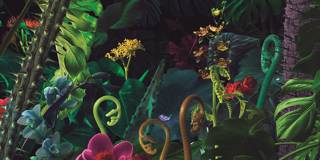The COVID-19 pandemic offers a preview of what can happen when humanity ruthlessly exploits nature. In mapping out a policy trajectory for the next decade, decision-makers must put aside the obsession with economic growth for its own sake, and start to heed the scientific evidence.
BOGOTA – There is no longer any doubt that the triple crisis of COVID-19, climate change, and biodiversity loss threatens to upend countless lives and livelihoods. And yet, in each case, disinformation, negligence, and outright denial of the problem continue to undermine the global response.
To move forward, we must come together to ensure that our decisions are based on the best available evidence. Science is the most powerful tool that we have to address these crises and work towards a sustainable green recovery.
All societies clearly value nature’s material contributions: food, energy, medicines, and the materials we need to build and support our economies. But for the last five decades, an exclusive focus on economic growth has resulted in the unsustainable use and extraction of nature’s material contributions, such that nature’s invaluable non-material and regulating contributions have diminished at alarming rates.

BOGOTA – There is no longer any doubt that the triple crisis of COVID-19, climate change, and biodiversity loss threatens to upend countless lives and livelihoods. And yet, in each case, disinformation, negligence, and outright denial of the problem continue to undermine the global response.
To move forward, we must come together to ensure that our decisions are based on the best available evidence. Science is the most powerful tool that we have to address these crises and work towards a sustainable green recovery.
All societies clearly value nature’s material contributions: food, energy, medicines, and the materials we need to build and support our economies. But for the last five decades, an exclusive focus on economic growth has resulted in the unsustainable use and extraction of nature’s material contributions, such that nature’s invaluable non-material and regulating contributions have diminished at alarming rates.